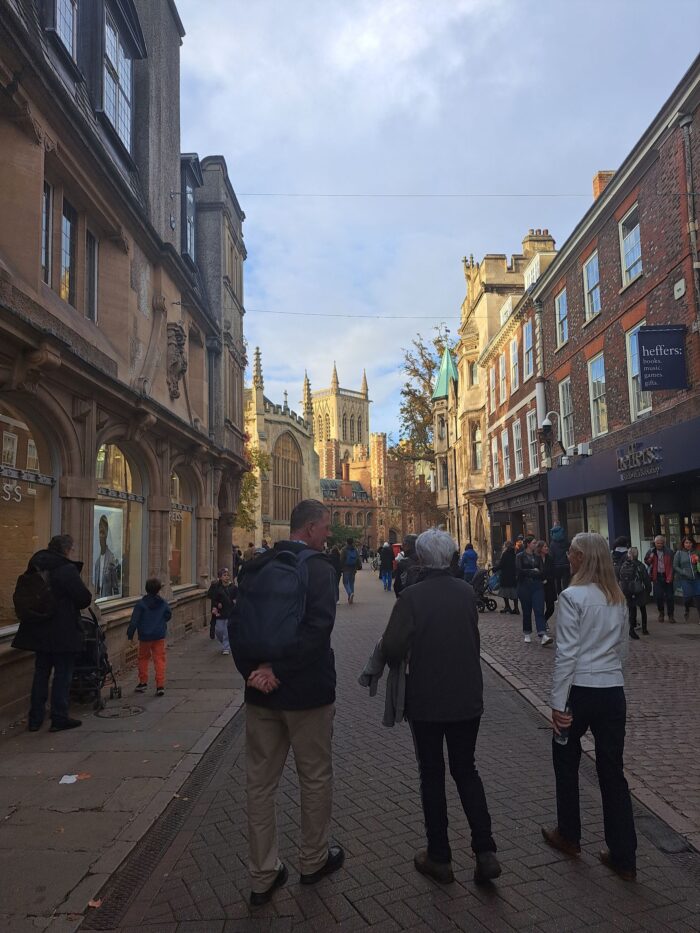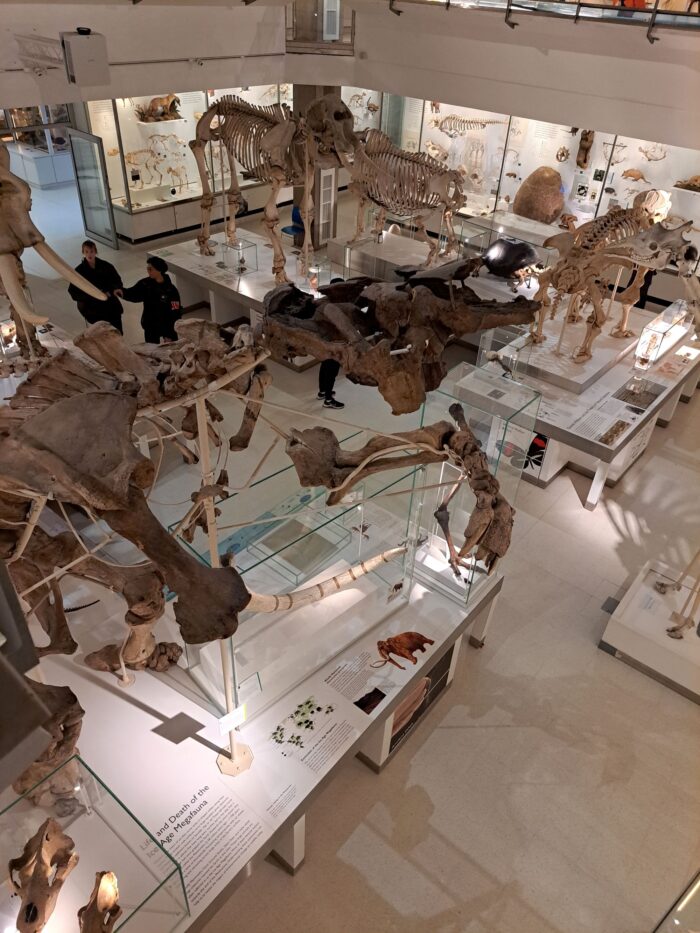Student Profiles – Maya, Natural Sciences (Biological)
Maya is a second-year Natural Sciences (Biological) student from Berkshire. At A Level, she studied Biology, Physics, Maths, and Further Maths.

Why did you choose Trinity Hall?
When I came on the Open Day, everyone was really friendly. I really liked how the staff were joking around with the students – it was less daunting and much warmer than most other colleges I saw that day.
How did you prepare for the application process and interviews? Was it what you expected?
For the NSAA, I revised my subject (Biology) but mostly I did all the past papers I could. Most were under timed conditions (even if not full exam conditions) because that’s the main challenge of the test.
For the interview, I revised my subject and watched every Oxbridge science mock interview online I could. I was lucky enough to have a teacher give me a mock interview too. It was really helpful to practice talking out loud about Biology with friends, and getting used to articulating my thoughts. The interview was a lot less scary than I thought – it really was just being asked questions about my subject so I could apply my knowledge, and it wasn’t an issue if I didn’t get the answer as long as I tried.
Why did you choose your course?
Natural Sciences has very unusual module choices. I really wanted to do something physics-based along with Biology but everywhere else I applied for pure Biology because they just didn’t offer the same mix. Here, I get to do Materials Science alongside my Biology papers.

How does your course compare to your expectations?
There are horror stories online about the NatSci workload, but I’ve found it manageable. First term is difficult because you’re also balancing a lot of new social stuff, but you get into the rhythm of it. How well people manage the work really varies from person to person – I think doing 4 A Levels was good practice for the volume, but that doesn’t mean it’s unmanageable if you’ve done 3.
I think the most difficult part is all the contact hours, rather than the amount of work set, but again it is doable. It’s also important to remember that you’re supposed to find the work hard – supervisors don’t expect you to show up knowing everything from the lectures.
What is your favourite part of your course?
The variety. I get to do subjects together I wouldn’t get to do elsewhere, such as Mathematical Sciences, Physiology, and Biology of Cells.
How are you taught?
Warning: NatSci has a lot of contact hours – but the number sounds much worse in isolation! Think how many you do at school. For me (per week): Supervisions: 4 Lectures: 12 Practicals: 10 = 26 hours/week total.
How do you manage your workload?
Because supervisions are the same time each week, you get into a rhythm of certain work early in the week and certain work later. I don’t usually need to write my supo work down because it’s so consistent.
What do you like to do when you’re not working?
There’s so much going on. Especially since Trinity Hall is smallish, it’s quite close-knit so there are always people in the JCR or going to the pub. I do college sport (hockey and rowing) and go along to a lot of random events that happen like salsa dancing and pub quizzes.
If you still have questions about studying at Trinity Hall, please go to the Access and Outreach page, to see the current support schemes we are offering prospective applicants and to contact the Access and Recruitment Officer.
Additionally, we are relaunching Talk to a Student, where you can apply via this form to organise a 30-minute Zoom call with a current student, who can answer any specific questions you have that are not already answered on the website or via correspondence with the Admissions team.
